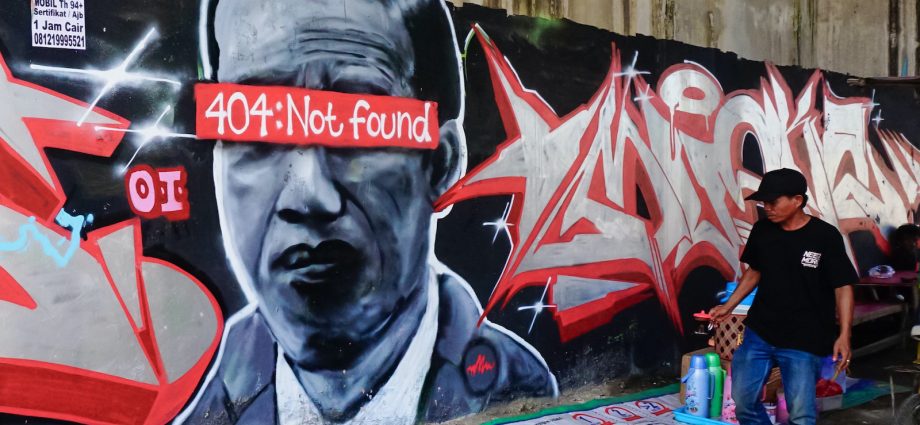JAKARTA – Conspiracy theorists are having a field day after a Jakarta district court sought to order the postponement of Indonesia’s February 14, 2024, presidential and legislative elections until the General Elections Commission (KPU) has resolved an issue with an obscure political party that has never held a parliamentary seat.
Legal and election experts say the court’s decision is out of line and won’t stand up to appeal court scrutiny, but it still feeds into months of rumor and speculation that loyalists around President Joko Widodo are trying to extend his term for another two years beyond the legal maximum of two five-year terms
In an unusually blunt statement, political coordinating minister Mahfud MD described the decision as “sickening” and said that while it was easy to refute the ruling could be used to politicize an issue that has lingered since the Covid-19 pandemic set back the president’s second-term work program.
Mahfud and other experts all say the authority to postpone a national election lies not with the judiciary but with the election commission alone and can only be justified for security reasons or because of natural disasters, riots or other disturbances.
“I am of the opinion that the decision of the state court can’t be executed,” he said on his Instagram account. “It must be opposed according to the law and people should massively reject it if it is executed. Why? Because the right to hold elections is the sole responsibility of the KPU.”
Mahfud, a former Constitutional Court justice, said the pre-election dispute can only be settled by the General Election Oversight Body (Bawaslu), which supervises the KPU’s actions, and the State Administrative Court (PTUN).
A three-judge panel on the Central District Court triggered public outrage by accepting a lawsuit filed by the largely unknown People’s Justice and Prosperity Party (Prima) seeking a repeat of the entire selection process after the KPU disqualified it from running in the upcoming elections.
In its judgment, the court ordered the KPU to call to a halt the remaining stage of preparations for the 2024 elections and to return to the initial phase for “two years, four months and seven days” – a period that will only expire in July 2025.

It said the KPU had violated the principles of accuracy and professionalism in carrying out the verification process, where Prima was declared ineligible at the first hurdle by failing to meet the commission’s stringent membership requirements.
Formed in June 2021, Prima is headed by Agus Jabo Priyono, a veteran activist involved in the founding of the supposedly left-leaning People’s Democratic Party (PRD) that became a target during the dying days of president Suharto’s authoritarian regime.
According to his official profile, Priyono became an activist while studying at Sebelas Maret State University in the Central Java city of Solo, where a lowly furniture maker widely known as Jokowi (Widodo) launched his precedent-busting political career as hometown mayor.
The PRD never won a seat in the 1999 legislative election, the first democratic poll since Suharto’s overthrow the previous year, and did not contest another election until 2019 when it again fell short at the ballot box.
Two years later, it was reborn as Prima on a platform of tax reform, national unity and clean governance, but it was excluded from the 17 of 40 parties that the KPU announced last December had qualified to participate in the 2024 election.
Apart from a constitutional change, which is almost impossible at this late stage, it will take a parliamentary vote to allow Widodo to serve an extended term, something his own ruling Indonesian Democratic Party for Struggle (PDI-P) opposes.
Party secretary general Hasto Kristiyanto said in a statement that PDI-P leader Megawati Sukarnoputri remains committed to the elections being held on schedule. “The KPU’s decision to appeal the ruling is correct and gets the full support of PDI-P,” he added.
Responding to the public outcry, the Judicial Commission announced it was investigating why the three district court judges felt compelled to meddle in the election dispute, knowing that they had no legal right to do so.
Opinion surveys show that while Widodo is still highly popular after nearly nine years in power, an equal number of respondents are against him seeking an extension, an indication of how the electorate has matured over the past two decades.
While Indonesian democracy lacks a genuine political opposition to ensure its government is subject to checks and balances, voters genuinely treasure their right to choose their leaders in what up to now have been free and fair elections.

Widodo finally told his subordinates last April to stop talking about an extension or a delay to the elections in his first clear effort to put to bed a controversy that had raised political temperatures and sparked concern about a backward step for democracy.
But the movement apparently remains alive behind the scenes and, at the very least, the president still seems intent on extending his influence in Indonesian politics beyond 2024.
Insiders say the prospect of a third term first arose after the 2019 elections, then gathered pace after the outbreak of the Covid-19 pandemic proved a major setback to Widodo’s second-term agenda.
Central to that has been the plan to move the national capital from Jakarta to East Kalimantan, a US$35 billion undertaking that has run into financing difficulties which will cause further serious delays unless more money is found in the state budget.

